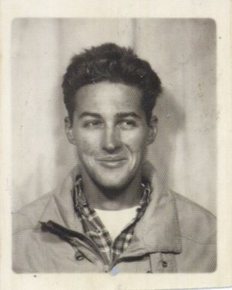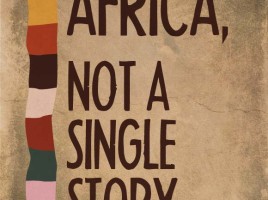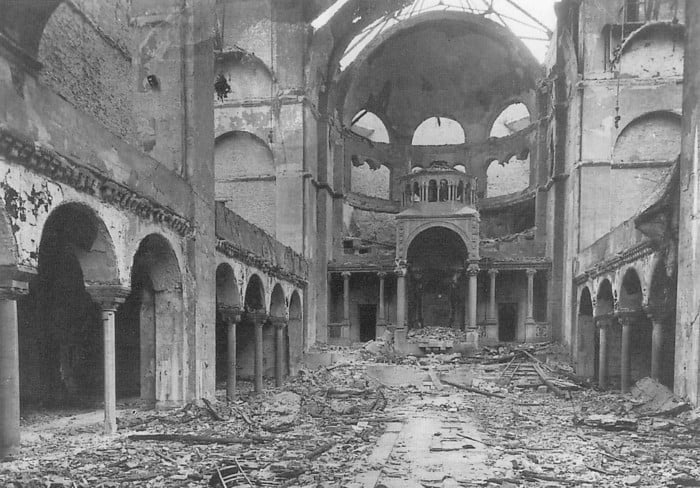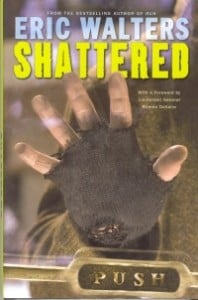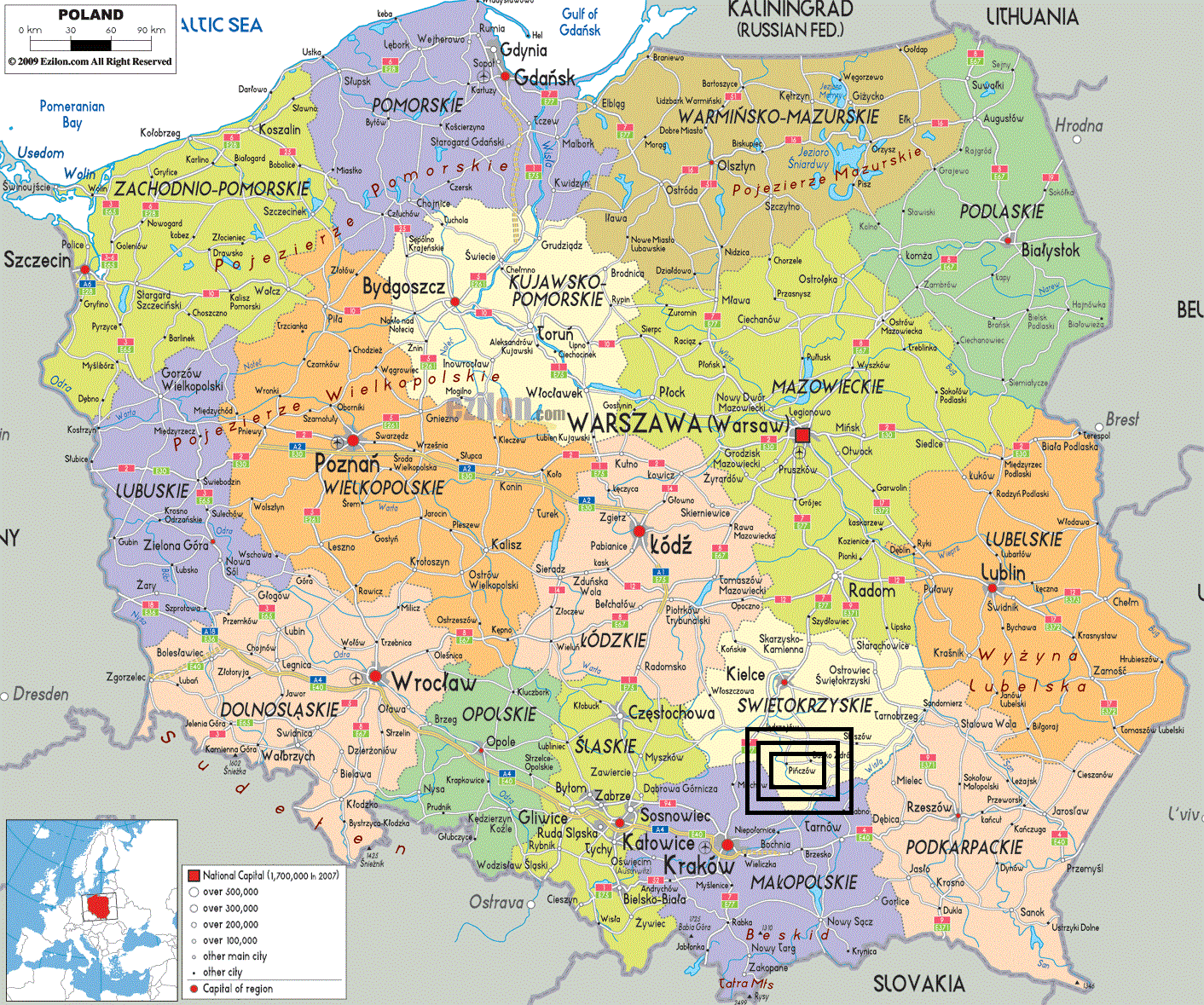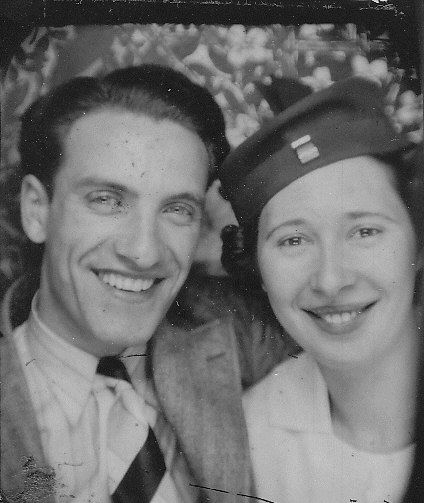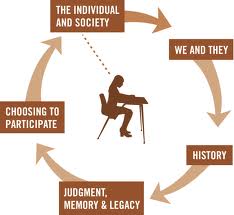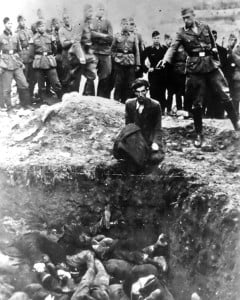I started journaling when I was a boy canoeing the waters surrounding my family cottage in Muskoka. My journals were filled with maps of all the places I “discov
ered” during my summers up north. As the years went by and I entered high school, the journal’s pages of maps became dotted with anecdotes from my life beyond that lake. It was around this time that I found a copy of The Journey is the Destination: The Journals of Dan Eldon at a local bookstore.
Journaling in a Facing History Classroom: Finding Wisdom in Student Voices
Posted by Nathan Tidridge on March 18, 2014
Topics: Identity, History, Memorial, We and They, Strategies, Genocide and Crimes Against Humanities Course, Lesson Ideas, English Classroom, CHG, Personal history, reflection
Topics: History, current events, Middle School, Social Justice, reflection
Topics: Choosing to Participate, Facing History Resources, History, Best of..., Lesson Ideas, Holocaust and Human Behaviour, CHG, reflection
Topics: Choosing to Participate, Human Rights, Facing History Resources, Best of..., Lesson Ideas, Holocaust and Human Behaviour, Social Justice, reflection
Commemorating Kristallnacht: Connecting to the Past, Learning Lessons for the Present
Posted by Ben Gross on November 7, 2013
This Saturday marks the 75th anniversary of Kristallnacht or “Night of the Broken Glass." On the night of November 9th, 1938, Nazis and their followers looted and destroyed thousands of Jewish homes and businesses, and scores of synagogues. They killed over ninety Jews that night, and sent over 30,000 others concentration camps.
Topics: Choosing to Participate, History, Memorial, current events, genocide, Genocide and Crimes Against Humanities Course, In the news, Social Justice, reflection
From Summer Seminar to School: What I Took Back to My Classroom
Posted by Facing History and Ourselves on October 17, 2013
As a middle school teacher I was often asked why I was giving up a week of my summer to attend the Facing History and Ourselves’ Holocaust and Human Behaviour seminar. “You don’t teach that time period,” being the most frequent comment. They were right. But there was something about Facing History and how they approached teaching that piqued my interest and so I went.
Topics: Back-To-School, History, Middle School, We and They, Summer Seminar, Literature, reflection, English
This summer, Jack Lipinsky, along with 10 other Facing History and Ourselves teachers from Jewish day schools around North America, participated in a week-long study trip to central Poland. The trip was led by Facing History’s Director of Jewish Education Jan Darsa. It was sponsored by Polish non-profit The Forum for Dialogue Among Nations. His experiences, in particular his visit to the town of Pińczów, impacted him greatly.
Topics: Choosing to Participate, History, We and They, Culturally Responsive and Relevant Pedagogy, In the news, Personal history, reflection
I don't know much about the history of my dad’s family. I used to think that this was because there was not much known. I'm beginning to think differently. What I know about my dad’s side of the family is that my Zaida (grandpa) came in 1920 from what was then Ukraine (now Belarus) as a refugee via a camp in Romania. My Baba (grandma) came in 1914 as an immigrant with her aunt’s family from Ukraine, near Kiev. The legend of the family is that they were on the last boat before World War 1 broke out. My Zaida was a refugee from the same war that my Baba narrowly avoided. I know that after marrying, my Zaida served in World War II before starting a family. He had three children; two daughters and my father. There weren’t too many other details that I knew, especially about the family pre-World War II.
Topics: Choosing to Participate, Identity, History, legacy, Personal history, reflection
As you may have read in other blogs, the “Stand Up, Speak Out” event was an incredible evening of sharing and community. For me it served to exemplify, and personify, the Scope and Sequence of Facing History and Ourselves. On that evening, half a dozen of my students took the stage along with students from three other southern Ontario schools to perform their spoken word pieces. The performances were broken down into the five steps of the Facing History Scope and Sequence:
Topics: Choosing to Participate, Facing History Resources, Identity, History, Urban Education, project, We and They, Strategies, Culturally Responsive and Relevant Pedagogy, genocide, legacy, Genocide and Crimes Against Humanities Course, Holocaust and Human Behaviour, CHG, reflection
"The Last Jew in Vinnitsa": How Media provides a way to understand Perpetrators/Bystanders/Victims
Posted by Jack Lipinsky on April 7, 2013
Graphic imagery is used in this lesson. Please read the full post before teaching this.
I start by displaying the famous photo called "The Last Jew in Vinnitsa."
I say, "This was the title given by the Einsatzgrup soldier in whose pocket it was found, scribbled on the back. Vinnitsa is a small town in the Ukraine whose entire Jewish population was wiped out by the Einsatzgruppen mass killing methods in 1941."
This is all I tell my students when displaying this picture. They have already learned about the Einsatzgruppen and read the selection on "Battalion 101" in Holocaust and Human Behaviour Chapter 7 Reading 3 . They have also been taught that there are three groups involved in genocide: perpetrators, bystanders, and victims.
Topics: History, The Last Jew in Vinnitsa, genocide, Genocide and Crimes Against Humanities Course, Lesson Ideas, reflection

